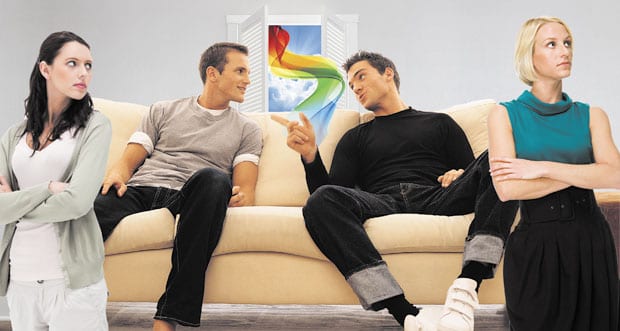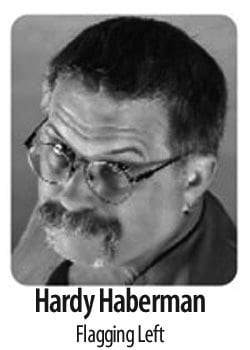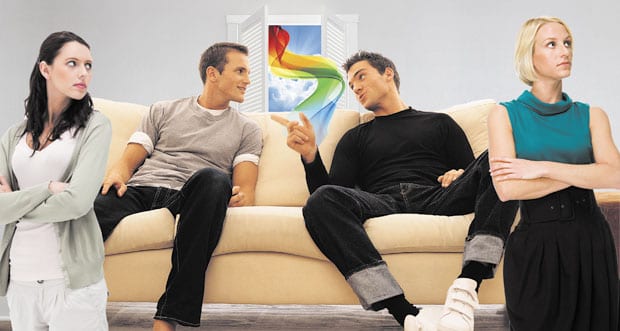
Arecent article talking about the “bro job” — a sex act between heterosexual men — has me questioning the whole sexuality alphabet soup we live in.
LGBTQAAI (lesbian, gay, bisexual, transgender, queer, asexual, allies, intersex), etc., seems to be getting a bit awkward, and perhaps someday soon we will just refer to people as “people.”
 I ponder this because I personally know of several “straight” men who have experimented with MSM (the current term for “men having sex with men but who are not gay”). A couple of them even admit they like it better than PIV (penis in vagina) sex, yet they have no emotional attraction to men other than as friends.
I ponder this because I personally know of several “straight” men who have experimented with MSM (the current term for “men having sex with men but who are not gay”). A couple of them even admit they like it better than PIV (penis in vagina) sex, yet they have no emotional attraction to men other than as friends.
Perhaps it’s time we stopped classifying ourselves by what we do with our sex organs, and start understanding who we are by who we love and how we express that love.
I know it’s not that radical an idea, but for a man who grew up and came out immediately post-Stonewall declaring myself gay or bi or whatever was important. It was planting my flag and staking out territory where I could feel safe.
At a time when merely hinting at attraction for another man would get you shunned, ridiculed or in some cases beaten up, coming out was a revolutionary act. In some places it still is.
The bars and baths and clubs and institutions of the LGBT world — the gayborhood — were a safe space where we could express our sexuality and nurture our activism. We had a common cause.
Meanwhile, the metrosexuals of the world don’t find sexual identity as important as I and my brothers and sisters “of a certain age” once did. They are more comfortable with sexual fluidity and less likely to identify with the alphabet soup.
Because of this, the old institutions of lesbian and gay culture are dwindling. Gay bars no longer are unlabeled places in dicey neighborhoods. Lesbians are as likely to meet up at a trendy bistro in the West Village as at Sue Ellen’s.
Even the once sacrosanct venue of the leather bar has changed. Once a bastion of male energy with a strict dress code, today’s leather bars are welcoming to everyone. You are as likely to see someone there dressed in slacks and a sweater as chaps and a harness.
What this really means is that the institutions and attitudes that drove LGBT people together, the places where gay culture was born, have changed forever. With that change, there is a real chance that the culture they facilitated and nurtured may disappear.
That may be inevitable.
Oppressed minorities are like nuclear reactors that generate fashions, language and behaviors with a unique texture and color. This was true of New York Yiddish culture in the 1920s and ’30s, black culture from the Harlem Renaissance to hip-hop and, to an extent, Tejano culture in the last few decades.
Gay culture was born in the same atmosphere, and our fashion, our music, our campiness and our butchness was the chain reaction resulting from that oppression.
But as we are integrated into society, we may lose that critical mass that caused the explosion of creativity and culture. We may lose our identity based on our sexuality.
Whether that is a good or a bad thing remains to be seen.
Hardy Haberman is a longtime local LGBT activist and board member for the Woodhull Freedom Alliance. His blog is at DungeonDiary.blogspot.com.
This article appeared in the Dallas Voice print edition May 20, 2016.
“Bro jobs” and what it means to be gay














